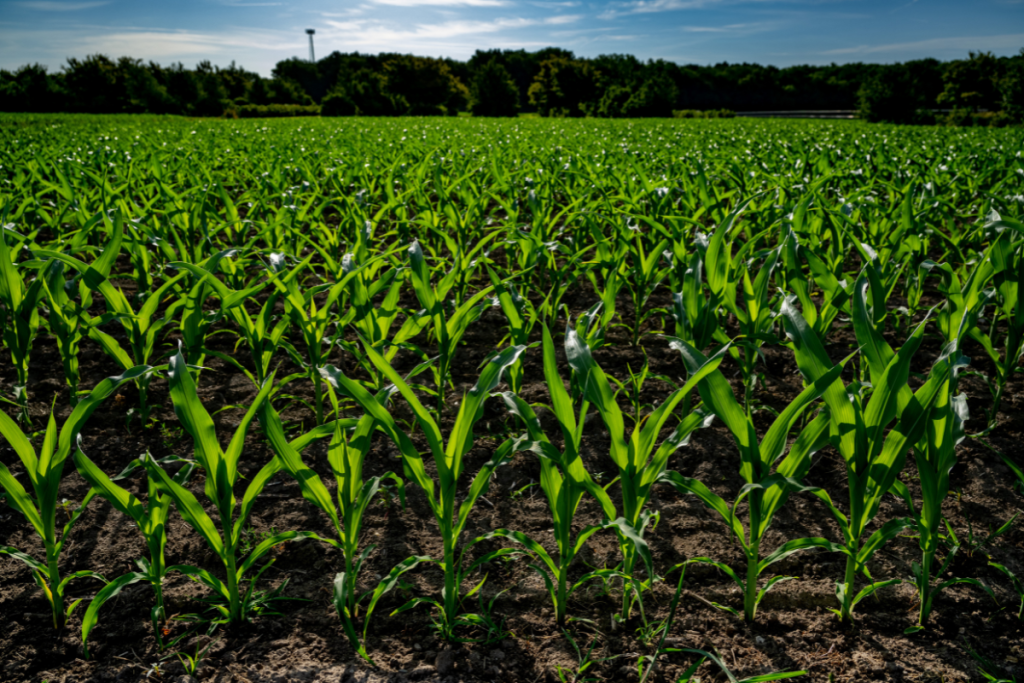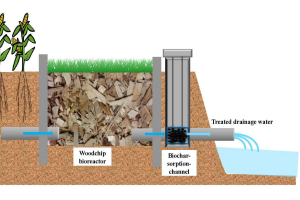
In a new $1 million three-year project, Illinois Sustainable Technology Center (ISTC) researchers will develop a bioreactor and biochar-sorption-channel treatment system to remove excess nitrogen and phosphorus from tile drainage water, which will reduce nutrient loss from crop fields to local waterways.
Excess nutrients in surface water contribute to harmful algal blooms that produce toxins and threaten the health of water ecosystems. A variety of treatment techniques have been studied to reduce nutrient losses.
 Woodchip bioreactors, which are buried trenches, have proven to be a cost-effective and sustainable solution to reduce nitrate-nitrogen loss from tile-drained crop fields. However, concentrations of ammonium-nitrogen are often elevated after water has flowed through a bioreactor. Also, woodchip bioreactors do not have a significant effect on phosphorus removal.
Woodchip bioreactors, which are buried trenches, have proven to be a cost-effective and sustainable solution to reduce nitrate-nitrogen loss from tile-drained crop fields. However, concentrations of ammonium-nitrogen are often elevated after water has flowed through a bioreactor. Also, woodchip bioreactors do not have a significant effect on phosphorus removal.
Principal investigator Wei Zheng and colleagues plan to develop an innovative treatment system by integrating woodchip bioreactor and designer biochar treatment techniques to reduce the losses of both nitrogen and phosphorus nutrients from tile drainage.
Designer biochars are applied in biochar-sorption-channels to capture dissolved phosphorus and ammonium-nitrogen simultaneously. Researchers will seek to produce the most efficient designer biochars by pyrolysis of biomass pretreated with lime sludge.
The U.S. Environmental Protection Agency-funded project will evaluate the new system by conducting a scale-up field study at a commercial corn production farm.
Researchers will also apply the nutrient-captured biochars as a soil amendment and a slow-release fertilizer in fields to improve soil fertility.
The results from this project will help federal and state agencies and farmers evaluate their current nutrient management practices, inform science-based regulatory programs, and offer an innovative, feasible, and cost-effective practice to mitigate the excess nutrient loads to watersheds, prevent and control algal blooms, and improve agricultural sustainability.
Media contact: Wei Zheng, 217-333-7276, weizheng@illinois.edu, news@prairie.illinois.edu

